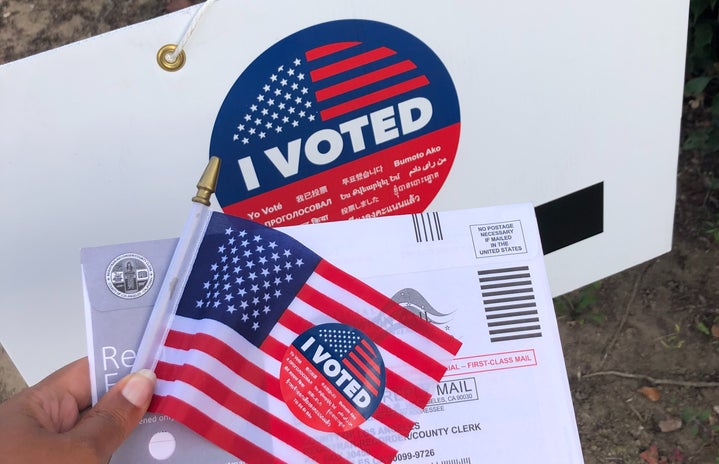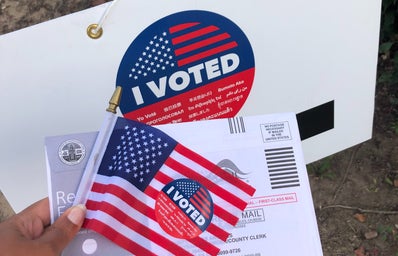From March 25th to March 27th, the festival Lollapalooza Brazil 2022 took place in São Paulo, at “Autódromo de Interlagos”. Besides many other things, the festival was marked by political opinions from the artists and the public during the event. It all started when the singers Pabllo Vittar and Marina, who performed on the first day of the event, manifested their opinions against Jair Bolsonaro, the current president of the country.
After the Brazilian singer and drag queen, Pabllo, raised a flag with the face of the former president and presidential candidate Luiz Inácio Lula da Silva and screamed “fora Bolsonaro” at the end of her show, the entourage of the president requested to the TSE (Superior Electoral Court) that political manifestations for or against any candidate or political party be prohibited. Considering Brazil´s laws and the complex context that our policy lives in today, what the TSE imposed on Lollapalooza has only one name: censorship.
What is the difference between manifestation and campaign?
When the decision was published, on March 26th, the current minister of the Brazilian court of law, Raul Araújo, affirms that the Federal Constitution guarantees the free expression of thought. However, he says that “the manifestation externalized by the artists during their participation in the event, as described in the initial, and portrayed in the attached document, characterizes political-electoral propaganda”.
Article 36 of the Law on Elections, mentioned by the minister, states that electoral propaganda “is only allowed after the 15th of August of the year of the election”. According to the lawyer specialized in Electoral Law, Alberto Rollo, carrying out electoral propaganda is to ask for votes or to discourage votes for other candidates explicitly. However, that is not what happened at Lollapalooza.
What both Marina and Pabllo did during their shows was the expression of political ideas or propaganda for party membership, which is permitted by Article 36 itself. According to it, they do not constitute early electoral propaganda, as long as they do not involve an explicit request to vote, the “mention of the alleged candidacy”, the “exaltation of the personal qualities of the pre-candidates”, the “disclosure of personal positions on political , including on social networks”, and participation in events, interviews, and debates. In addition to the comments made by Rollo, other lawyers and academics also say that raising a flag or leading a chorus against the current president does not necessarily constitute electoral propaganda.
So, artists CAN manifest their political opinions. But are they obligated to it?
In 2018, when Bolsonaro was still a federal deputy and candidate for the presidency of Brazil, many artists manifested their opinions against him. The current president was known for having a controversial personality, due to statements classified as hate speech and aggressive and harmful political views, which include sympathy for the Brazilian military dictatorship and the defense of torture and murder practices committed by that regime. But a specific figure gained notoriety precisely for not speaking out: Anitta.
The Brazilian singer was highly demanded to take a stand against the candidate, and extremely judged when she openly said that she would not take a stand. “I don’t want to be forced to campaign politically when that’s not the job I chose,” she wrote on Twitter. The hashtag #AnittaIsOverParty quickly reached the app’s trending topics, in which users claimed that the singer’s lack of positioning represented a disrespect for communities directly affected by Bolsonaro’s criminal opinions – especially the Feminist and LGBTQIA+ communities.
In September 2018, during a show in the inland of São Paulo, Anitta, who wore the white and purple colors, a mark of the women’s movement against Bolsonaro, said: “I just played a song that I’m rolling around with my clothes all tucked in and people say I I’m supporting sexist people. That’s not me!”.
Two years later, in 2020, Anitta explained why she doesn’t take part in those kinds of discussions, since she wasn’t used to understanding politics in general. “I was 25 years old and I came from a completely humble background, and people like us, in Brazil, have practically zero political education. I don’t feel ashamed, but I wouldn’t give a voice to something I didn’t understand,” she said in an interview with “Ela” magazine, from the newspaper O Globo.
But what is the importance to the public that the artists manifest their political opinions?
Currently, the singer shows that she is more politically engaged. During a concert by Anitta in Rio de Janeiro, in January 2022, the public cursed the president. From the stage, the artist endorsed the criticism and said: “The voice of the people is the voice of God”. Shortly after, the singer played with the video for her new song “Boys Don’t Cry”, in which he altered a scene from the video and posted on her Twitter a card written “Fora Bolsonaro” (originally “I want you back!”).
Back to Lollapalooza, after the decision of the TSE, many artists manifested themselves against Bolsonaro. Banda Fresno was the first to demonstrate their opinions related to the president, followed by Lulu Santos, Marina Sena, Djonga, Emicida, Marcelo D2 with the band Planet Hemp, among others – even the company Time For Fun, organizer of the festival in Brazil, has officially manifested itself through an appeal on the decision of the minister Raul Araújo. Gloria Groove, who performed on the last day of the event, said: “This afternoon, before coming here, I was thinking: Have we gone back in time? Is this what is happening, do they want to shut us up? Censorship in 2022 my ass! Bolsonaro out!”.
What all the artists’ manifestations have in common is that all of them used their powerful voice to encourage young people to take the voter registration card and don’t forget to vote in the next elections. The decision, extemporaneous and useless was revoked based on lame excuses, such as the minister saying he had been misled by the authors of the request. It still gave impetus to the campaign for the youth vote in the October elections.
The fact is that 2022’s Lollapalooza was remarkable not because of the rock and pop stars, but because of the manifestations that happened during the event.
The article above was written by Clarissa Palácio and edited by Lorena Lindenberg.
Liked this type of content? Check Her Campus Cásper Líbero home page for more!


